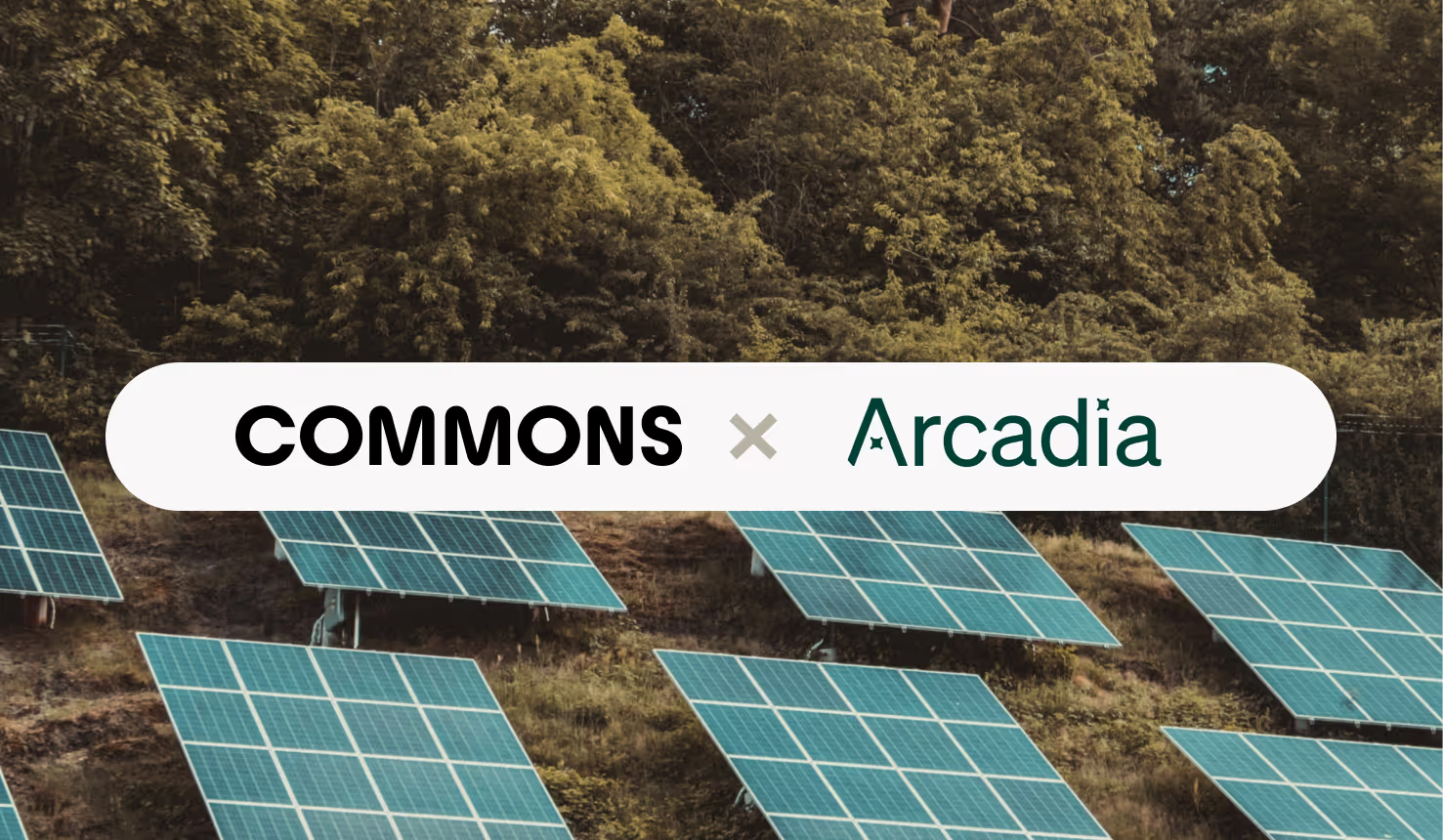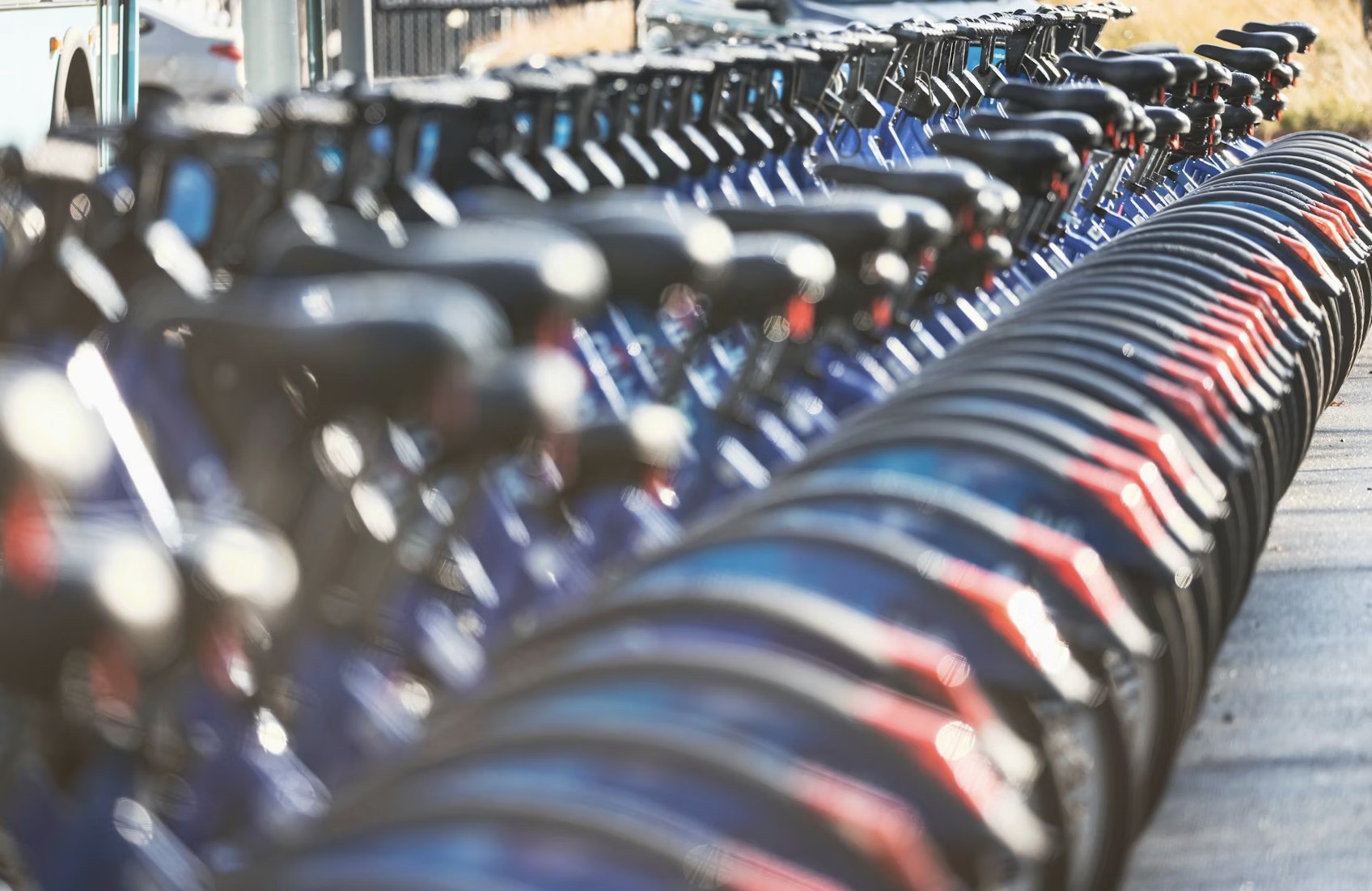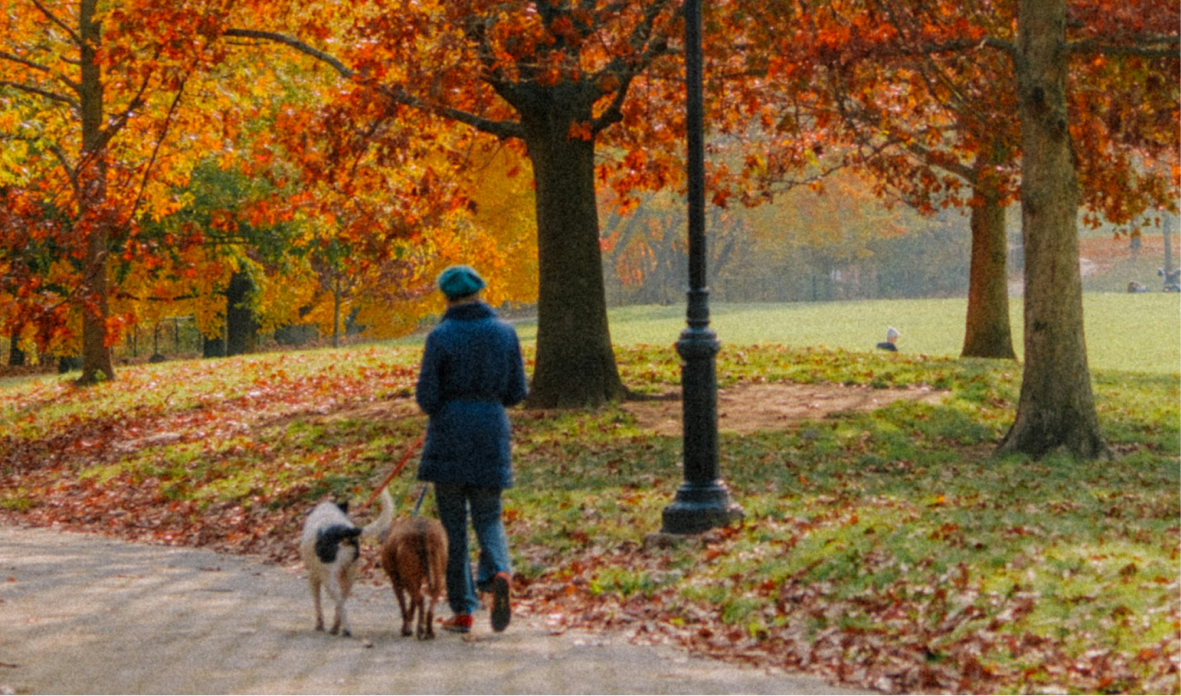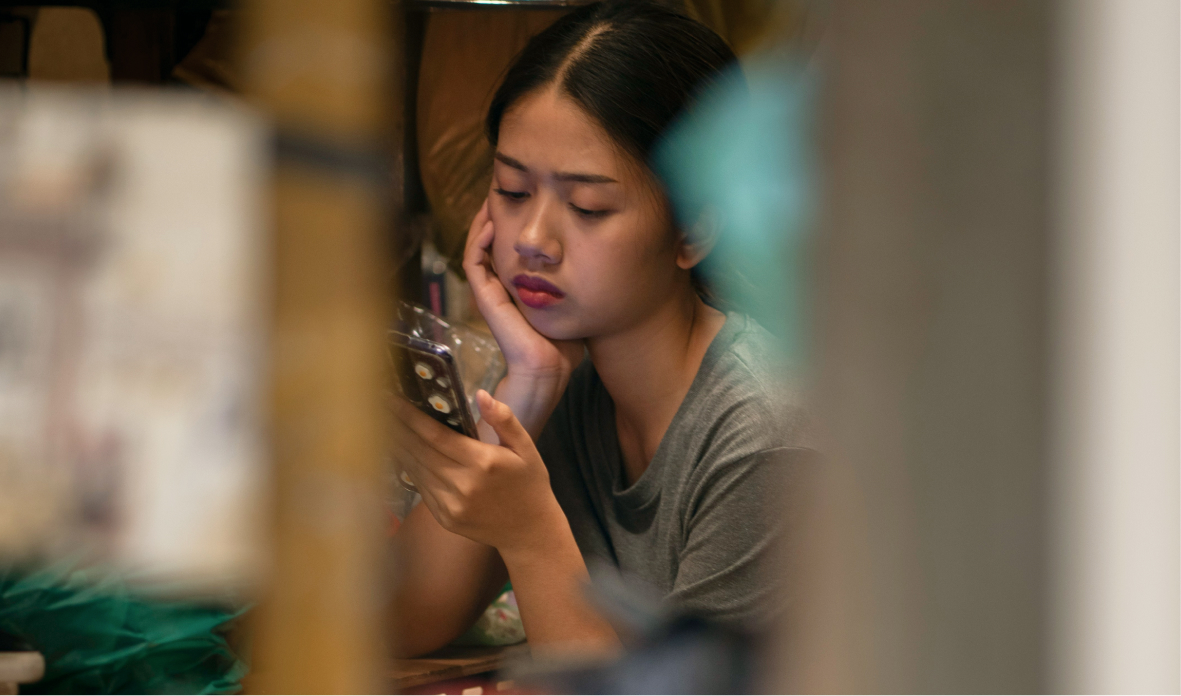Solar, Simplified: A Q&A with Arcadia About Community Solar

Join the community





Thanks to community solar, you don't need a roof to be part of the solar power movement. Arcadia is one of the companies leading the charge on making community solar accessible to the masses.
We spoke to Eleanor Parry from Arcadia to find out exactly how community solar works, who can use it, and dig into more about states' legislation processes. Watch the video or read the transcript below.
Sanchali Pal:
Can you tell us a bit more about Arcadia?
Eleanor Parry:
Yeah, of course. So Arcadia was founded in 2014 with a simple mission of connecting folks to clean energy. Historically, we offered many clean energy products including wind RECs. We had a brokerage program and even portable panels. But over time we discovered that the single most accessible product that we could offer folks was community solar. So our user-friendly tech connects folks to community solar projects.
Sanchali Pal:
And we were excited about this because when we were looking for community solar options, we found that Arcadia had a lot of coverage and it was really easy for people to switch to. But people might not know what community solar is. So can you tell us a little more about community solar?
Eleanor Parry:
Yeah, of course. So community solar is the best way to support solar energy without installing anything on your roof. They're usually built on unused land, can be in people's backyards or even on a community building such as like your local Home Depot.
I like to think of it kind of like a farm CSA, which people are more familiar with, where it's, you know, a local farm in your community that you and your neighbors can subscribe to and get the benefits of solar energy. A lot of people ask and are confused about there are no installations. You don't have to plug anything in. There's no additional costs or changes to your electricity supplier.
So a common misconception is that when people subscribe to community solar, they're gonna be getting a hundred percent of their energy from solar energy. That's not really true. I like to think of the utility grid as kind of like a blender where the grid gets fuel from many sources like solar, nuclear, natural gas, and just subscribing to solar energy. You're increasing the demand for more clean energy in your grid.
Sanchali Pal:
Okay, interesting. So it's kind of like if you're buying into a CSA, and then you are putting all your groceries from the CSA into the community kitchen, and then you were also taking vegetables from that community kitchen. So you knew that a higher proportion of them was coming from community solar, but you're not sure if your vegetables exactly are the ones that are coming from that farm.
Eleanor Parry:
Yeah, that's, that's a pretty good way to phrase that.
Sanchali Pal:
Super interesting. I mean, I think what's really cool about this is it helps to increase the proportion of renewables on the grid, which is the most important thing as we're starting to think about how do we shift two-thirds of our grid to renewable energy by 2030. That's a really important role that people can play. But for someone who's actually subscribing, could you tell us a little more about how that actually works for them? So if say it was you subscribing to community solar through Arcadia, how would that look?
Eleanor Parry:
[IMG] ****Yeah, so I think this image does a great job of kind of explaining the flow of how it works. So when you sign up for Community Solar, you're basically subscribing to a portion of the total energy that farm's producing. And your portion is based on how much energy you use in a typical month.
When you subscribe and your farm starts generating electricity, that electricity flows directly into the grid and you start receiving savings on your utility bills. Users usually end up seeing like around 5-10 or even 20% savings, depending on the state or your utility you're in. And the best part is there's no additional costs. People, you know, sometimes question, "Well, how can this be free?" Or what's, "How is Arcadia making money?" The best part is we don't, you know, charge folks for the service. The developers actually pay us to acquire folks like you to subscribe to these projects.
Sanchali Pal:
That's super interesting. I feel like that's, one of the biggest concerns with say, installing solar panels is that there's a huge upfront cost. And even for people who are thinking about opting into green electricity, sometimes when you do it through your utility provider, you're buying RECs or renewable energy credits which are basically carbon credits generated by renewable energy projects. And those can cost additional money sometimes it depends where you live, but it can cost you a little bit extra to opt into that. But I think what you're saying is that community solar often saves people money, which is really cool. And pretty, pretty different from other renewable electricity options. So who is renewable energy through community solar available to Can anyone in the U.S. Do it?
Eleanor Parry:
So where states have passed legislation anyone who pays a utility bill can sign up for community solar. It's really interesting that, you know, two-thirds of Americans can't get rooftop solar, like we're both renters Some people own their condos or they live in houses with unsuitable roofs for solar or you know, they can't meet the financial or there's high financial barriers to installing rooftop solar. So we really tried to community solar's bridging the gap for people to partake in solar energy and get the benefits from it.
There's a ton of benefits to community solar, namely savings on your utility bill. I think that's the biggest driver for folks to sign up for community solar. But other than that, and we talked about it a little bit, is that you're actually increasing the demand for community solar in your local grid. And then lessening the demand for fossil fuels in your grid. It also can promote local job creation for developing these projects and add energy resilience to your grid. So there's a lot of benefits to signing up for community solar.
Sanchali Pal:
Very cool. So people can find out about if Arcadia or Community Solar is available in their state by going to arcadia's website and plugging it in. And we'll talk a little bit more about that at the end, about resources to actually go figure out what options are near you through Commons and Arcadia.
So maybe we could walk through how this looks practically if someone's signing up.
Eleanor Parry:
Yeah, so basically you go to Arcadia's website and you type in your zip code and if you're eligible for community solar and you live in a right zip code you'll get to a funnel where you're able to sign up for community solar.
You start by creating your account and that gives you access to your member dashboard where you can see your billing history, your usage, and even which solar project you're assigned to. And then from there you connect your utility and that's basically how we determine how to allocate you to the project based on your electricity usage.
And then once you've connected your utility, depending on where you live, we may ask for a payment method and that's simply so we can pay the utility on your behalf and then present you with one final bill with your usage and the solar credits reflected on there. So then you're done, you're done.
You sit back, relax and wait for your solar farm to energize. So you can start to see those savings on your utility bill.
Sanchali Pal:
Okay, cool. So who are you actually paying for? Are users who are signing up paying Arcadia directly or paying their utility? Or does it depend?
Eleanor Parry:
Yeah, so it depends on which state and utility you live in and which project you're placed on. So we have two what we call billing types: Utility Consolidated Billing and Arcadia Consolidated Billing.
When you sign up for a UCB utility consolidated billing project, you don't provide your payment method. You pay the utility as you normally do, and your solar credits are directed reflected on your utility bill. Whereas what I mentioned before with Arcadia Consolidated Billing, that's where you provide us your payment method and we present you that one final bill with your solar credits reflected.
Sanchali Pal:
That's great. How much does this usually cost for someone who's signing up?
Eleanor Parry:
I get this question a lot. So I wanna preface users see net savings. Users actually do pay subscription fees to these projects for maintenance to keep them running. But the solar credits you receive are always gonna be greater than your subscription costs to these farms. So users see net positive annual savings on their utility bill.
So we're talking about four people where Community Solar is available. Maybe we can look at the map again just to remind ourselves where people can get access to Community Solar and where Arcadia specifically is actively managing projects. So we were talking about how this is available in states that have passed legislation to make community solar accessible.
Sanchali Pal:
What do we need to do or actually how, how can people start getting involved with advocating for community solar? If you don't live in a state where Community Solar is available, we need to contact our, our legislators right? To, to try to activate them to pass legislation for this. Has the IRA helped expand access to funding for solar development?
Eleanor Parry:
Yeah, so the IRA has presented massive tailwinds for community solar access to expand nationally. It mainly provides additional tax incentives for developers to create these projects. And what we're most excited about is that it provides additional incentives for low-income communities. So if a project is placed in a low-income community or it's mainly serving low-income communities, there are further benefits for developers to create these projects.
Sanchali Pal:
And we are seeing community solar expand now. I think Arcadia is expanding access to a few more states, right?
Eleanor Parry:
Yeah. So we're currently in 13 states. We launch states every year. So it's, as legislation is increasing and we're working with developers to get these projects live, we're seeing new states launch every so often.
Eleanor Parry:
We're currently the most excited that hopefully California in the near future we can start acquiring folks, 'cause I think it'll really change the game for Arcadia
Sanchali Pal:
That would be huge. That would be amazing. I mean, and also we have so much sun here that would be awesome.
Eleanor Parry:
Exactly. It's funny 'cause most of our states are in the Northeast and it's notoriously the least sunny in the Northeast. I live in New York so I know that. And people are always like, why is it not really in the more sunny states? So it's just this funny little thing that most community solar available in the Northeast U.S.
Sanchali Pal:
Super interesting. Yeah, we need definitely need to expand more community solar in places where we have more sun. There is a question from someone who's watching about what is actually involved in community solar legislation. What happens when the legislation passes? Could you talk a little more about that?
Eleanor Parry:
Yeah, so good question. Legislation basically paves the way for community solar projects to get developed and to make sure that these savings can be passed on to users.
Sanchali Pal:
That's great. So if people are living in a state where you don't have access to community solar yet, you can find that out. We're gonna talk more about that next. But you can actually take action to help ask your legislators to pass legislation to support Community Solar. Especially now that there's increased funding and for it from the IRA.
One really great resource for doing that is our friends over at Climate Changemakers, they're a nonprofit that helps people advocate for more access to climate policy, and they have a really great simple action that helps you write to your legislators to ask them to expand access to community solar.
So let's talk a little bit more about how you can use Commons and Arcadia regardless of where you are. If you download the Commons app you'll be able to see the action Switch to Renewable Energy. And once you go into that, if you enter a little information about yourself, your zip code how many people in your home, we'll automatically tell you the different options you have for switching to green energy. And that could be Arcadia or a community solar option. If you live in a state where that's available or if you live in a state where that's not an option, we'll give you some other options as well. Either switching your utility provider or switch or opting into renewable energy credits. If you are in a place where there's no solar options yet. Also with our partnership, you can get $50 off your first utility bill if you sign up with Arcadia, which is super exciting.
We love saving people money and we really believe that living sustainably does not have to be expensive. There are so many things you can do to lower your footprint that actually save you money as well because we're consuming less and we're saving money. And this is a great example.
So you can also go straight to the website arcadia.com/commons is the site where you can get $50 off if you sign up for Arcadia with Commons. Anything else Eleanor you wanna share before we're done?
Eleanor Parry:
Well I would like to say I kind of back to legislation that there is actually legislation has been passed in a lot of states. Arcadia is just managing projects in 13 of these states, but it's really, you know, from legislation, it has to go through the regulatory environment where they figure out how to implement these programs. How much savings you're gonna see if it the utilities, it's gonna be UCB versus ACB billing how to implement certain consumer protections. And then it goes to the developers to develop these projects and work twith the utility to pass this electricity into the grid. So a question I get a lot is how soon can I start signing up for community solar?
And the not great but honest answer is it can usually take a while for a state to pass legislation for users to actually be able to sign up and get savings. So the best I can do is be patient. Do your research 'cause these programs do exist in many, many states where Arcadia may not be available. And you can do a quick Google to see what community solar options your state has. But it's expanding quickly and it's really exciting to see like the tailwinds we have.
Sanchali Pal:
Super exciting. We just need it to be faster, but I'm so glad that Community Solar is an option. And so things I'm gonna remember after this, regardless of where you live in the US there is probably an option for you to express demand for more clean energy that might be through Community Solar. And if you live in a place where there is community solar, Arcadia is a great option. They make it pretty easy and you can save money while you're doing it.
If you live in a place where there isn't yet community solar, you can help advocate for community solar in your area and you can probably make the switch through either renewable energy credits or through your utility provider. And you can go to Commons or Arcadia for more resources. So thank you so much Eleanor for joining us and for explaining more about Community Solar. I hope that it will become as common as signing up for a CSA.












